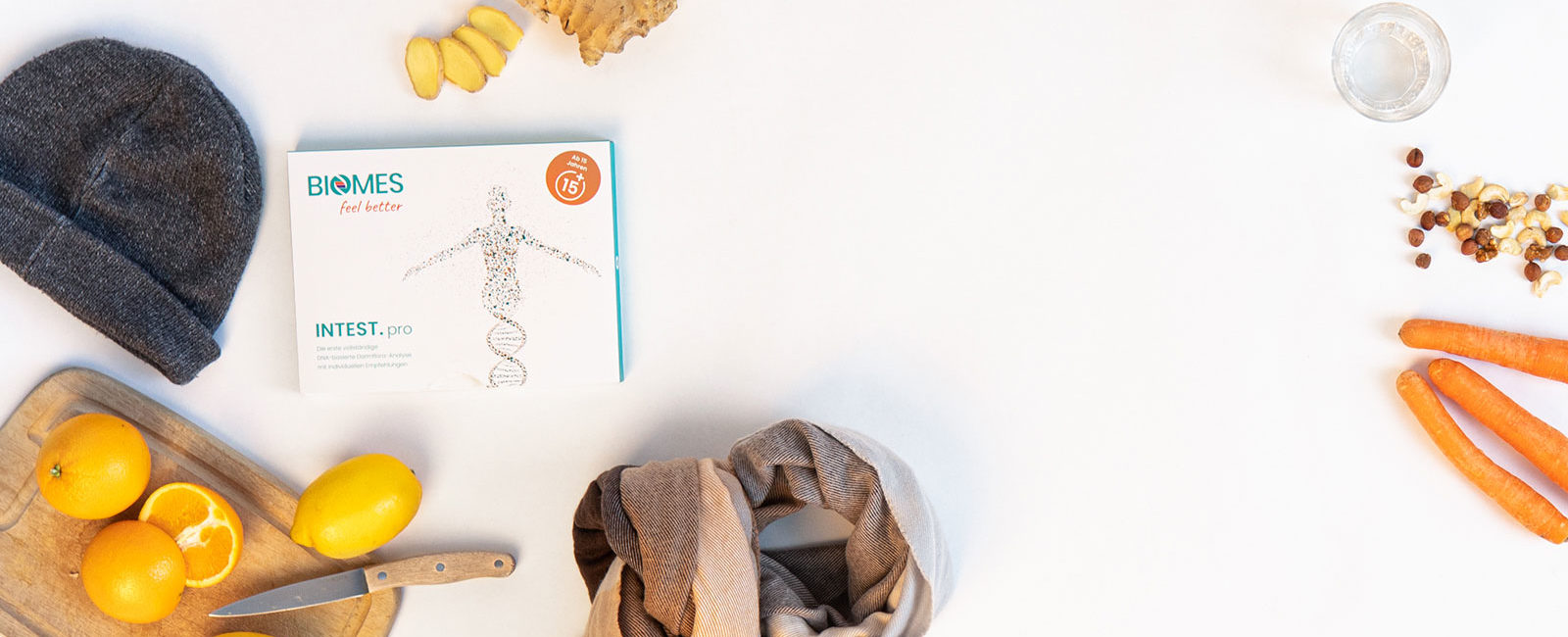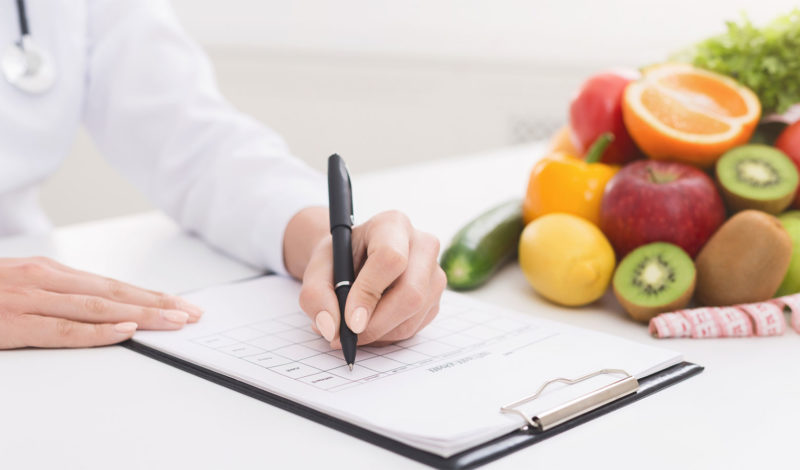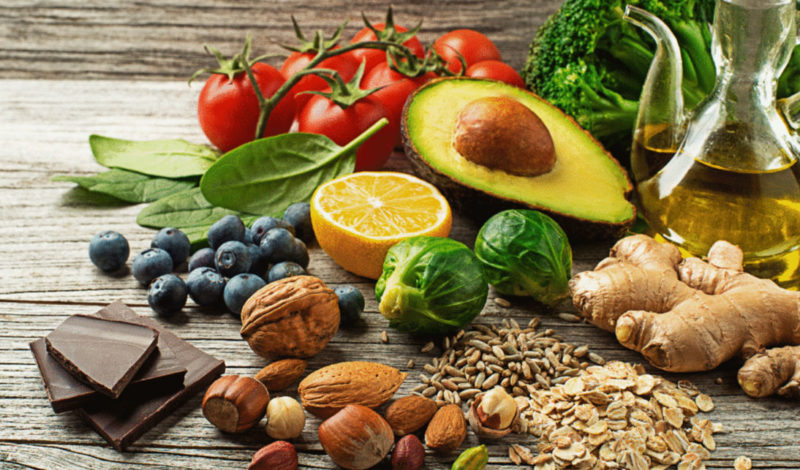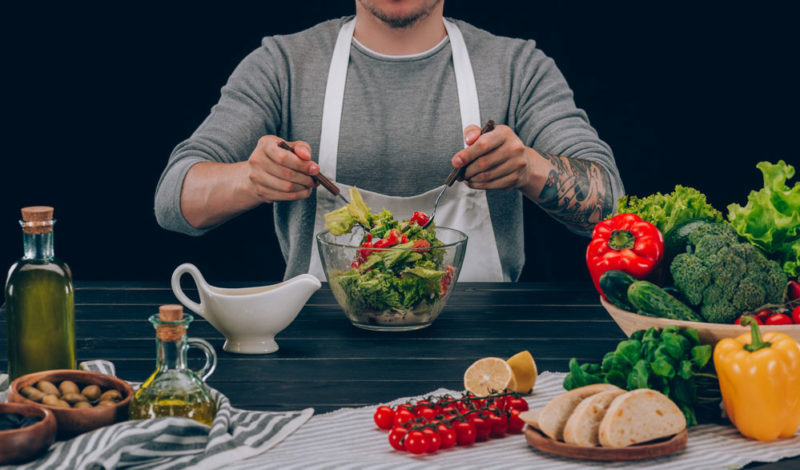A purely vegan diet means, especially for beginners, [...] a great challenge. eople always choose to live vegan. The transition [...]
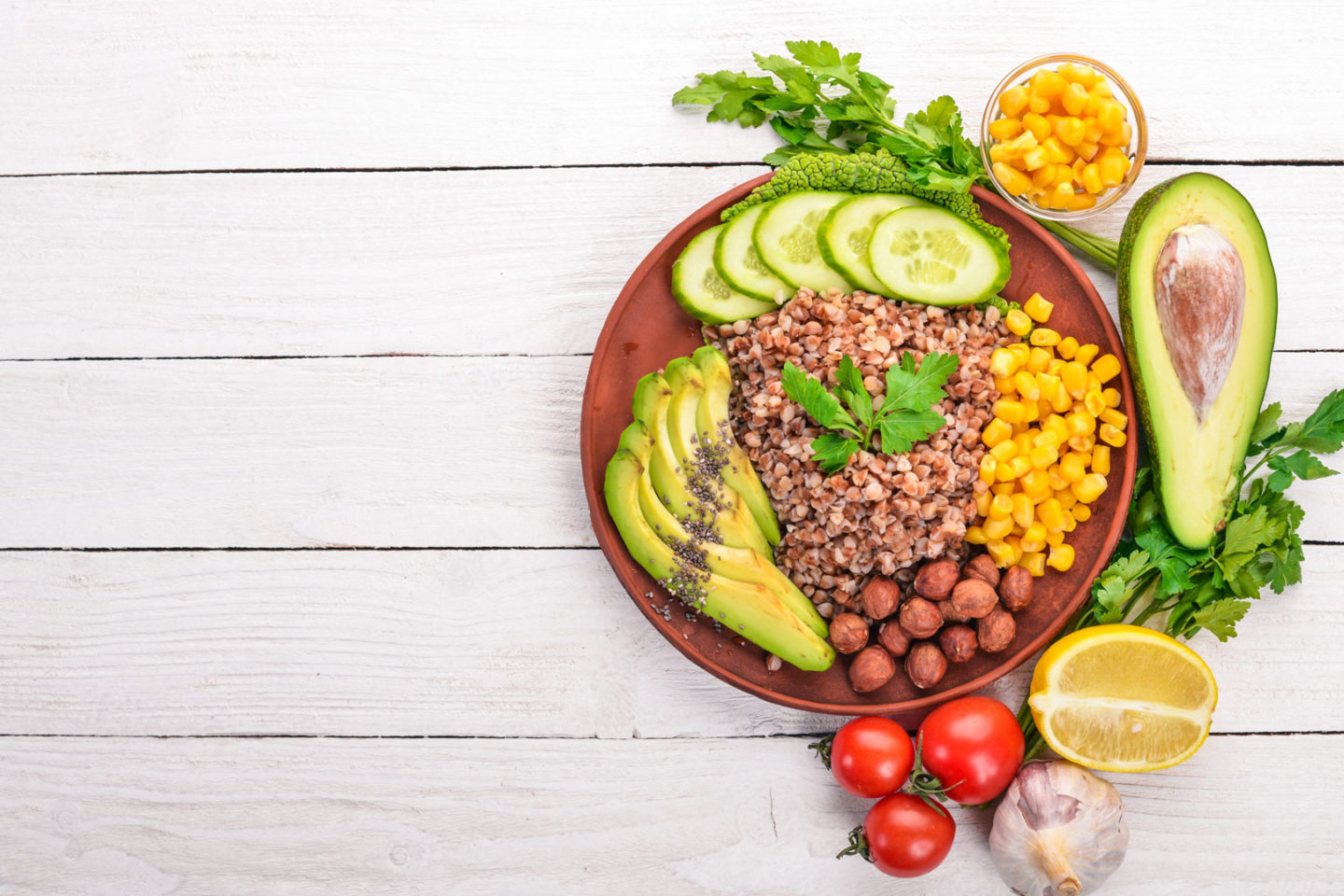
Vegan diet – the 6 best foods for a balanced intestinal flora
With vegans, nothing coming from an animal can get on the plate. They live without meat, fish, eggs, honey and dairy products. Almost one million Germans eat vegan. If you are one of them, then you’ve probably heard it before: “Vegan? You are missing protein and iron!”
In fact, animal products contain a lot of protein and the iron from meat is best absorbed by the body. However, this does not mean that all vegans are pale flaccid. There are many iron- and protein-containing foods from nature – without animals.
And a vegan diet can even help with intestinal problems such as diarrhoea or flatulence, because a particularly high consumption of meat promotes the spread of harmful bacteria in the intestine.
With these six foods, vegans not only get enough protein and iron, but everyone gets good nutrients for a healthy, balanced intestinal flora.
1. Chia seeds
They belong to the superfoods, because there is a lot of healthy power in these small seeds. First of all, chia seeds contain a thick portion of protein, twice as much as other seeds. In addition, there is a lot of zinc and a lot of calcium, five times (!) more than in milk. Chia seeds act like a natural cleaning agent for the intestines. Because they swell up there, they offer a larger surface on which pollutants get caught. They are then excreted, and the intestine is again sparkling clean.
2. Quinoa
The “Inca grain” also swells up in the intestine and therefore has the same cleansing effect as chia seeds. Quinoa also contains valuable amino acids, making it one of the foods with the highest protein content. Quinoa is now available in different forms in every supermarket: as a grain for cooking and popped, for example, as an ingredient for your muesli.
3. Nuts
A handful of almonds contains 6 grams of protein. Other types of nuts are also very rich in protein and provide long-lasting satiety. In the meantime, many nuts are also available as a must and as milk. Scientists have found that walnuts increase the diversity of the intestinal flora. They probably have a prebiotic effect and provide the good intestinal bacteria with valuable food so that they can multiply.
4. Soya
What is there to fight about the soybean! Some say, “super healthy”, others say “not right”. Like every bean, the soya bean is one of the foods rich in fibre. Accordingly, they have a prebiotic effect, because they offer a good food basis for the “good” intestinal bacteria. This promotes the balance of your intestinal flora. Soy also contains the most protein compared to other legumes. As with all other foods, soya can be harmful if it is consumed in large quantities. But you would have to eat several kilos of tofu and drink many litres of soymilk a day. In order not to consume genetically modified beans, it is advisable to buy organic products from an organic shop or health food store.
5. Sauerkraut
Lactic acid bacteria are not only found in dairy products, but also in vegetables such as white cabbage. If the cabbage is fermented, the lactic acid bacteria multiply and become a pleasure for you and your intestines. During fermentation, the bacteria on the cabbage produce lactic acid diligently. This ensures that pests are eliminated. In the acid environment, the good bacteria multiply very well and survive the otherwise so sharp stomach acid. By the way, you can easily make sauerkraut yourself. You can read how this works here. Bread Drink, Kimchi or Kombucha are also fermented and contain living bacteria that support the balance of your intestinal flora.
6. Cocoa
Cocoa is a natural probiotic. It contains many so-called polyphenols and flavonoids. These are secondary plant substances which are the nutritional basis of your good intestinal bacteria. If you feed them cocoa, they will thank you for it by forming antioxidants and strengthening your cells. The cocoa should contain as little sugar as possible so that it is very healthy and for vegans anyway without animal ingredients. Nowadays there are not only many kinds of vegan chocolate in organic shops, but also in supermarkets. By the way, there is also a lot of iron in cocoa.
And if someone asks you again what your iron supply is like, invite them to a cup of vegan cocoa.
